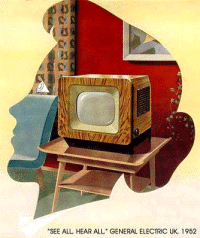
|
Media & Politics 46.210.201
This course explores the role of the media in American politics and
the role of politics in the American media. We begin with a
survey of theoretical approaches to media analysis and mass communications. Then we
focus on the evolution of the national press and increasing anxieties
about privacy rights. Next we look at instances of bad reporting and
examine how media consolidation and the rise of prestige journalism have
affected the news industry. Finally, after reviewing the ongoing crisis
in the newspaper business, we will study a few major stories in depth.
At the end of the course,
students should come away with a comprehensive understanding of the factors involved in the
conversion of events and developments into seemingly significant news.
|
 To view course requirements, the assignment schedule, and other
essential information, please download the current syllabus. To view course requirements, the assignment schedule, and other
essential information, please download the current syllabus.
|
1. Media Studies: A Survey of Basic Themes |
-
Timeline of the development of
communications technology
-
Inventing History, CBS News Interactive
-
Theodor Adorno and Max
Horkheimer,
"The Culture Industry:
Enlightenment as Mass Deception,"
from Dialectic of Enlightenment,
1944.
-
George
Orwell, "Politics
and the English Language" (London: Horizon, 1946).
-
Marshall McLuhan,
excerpt from
"Classroom Without Walls," Explorations
in Communication (Boston: Beacon Press,
1960). (Browse through collected quotes.)
-
Jean Baudrillard, "On
the Murderous Capacity of Images."
Reading questions for Unit 1
|
 |
|
4. Consolidation, Competition,
and Careerism in a Shrinking Industry
|
-
Media Consolidation, Now,
PBS. (Browse links.)
-
"History of the Fairness
Doctrine," Now, PBS.
-
Michael
Kinsley, "Glass
Dismissed," Slate,
Sunday, May 17,
1998, 12:00 AM PT
Katha Pollitt, "White Lies,"
The Nation, May 29, 2003.
Walter Pincus, "Newspaper
Narcissism," CJR, May/June 2009
Reading Questions for Unit 4:
Word
Google Docs
|
 |
|

Click image to view debate. |
|
5. Political Advertising in the
Age of Screens
|
-
News, Network, entry from the
archives of the Museum of Broadcasting
The Livingroom Candidate,
Museum of the Moving Image
|
|
6. The Decline of Newspapers
|
-
"Newspapers Face a Challenging Calculus,"
Pew Research Center, February 26, 2009.
-
Thomas E. Patterson, "The
Decline of Newspapers: The Local Story,"
Nieman Reports
-
Neil Henry, "The
Decline of News," SFGate, Open
Forum, May 29, 2007.
-
Bill Wyman, "Five Key Reasons Why Newspapers Are Failing,"
SpliceToday, August 12,2009.
-
Walter Isaacson, "How
to Save Your Newspaper," Time Magazine,
February 5, 2009.
Assignment for Unit 6
Word
Google Docs
|

|
|